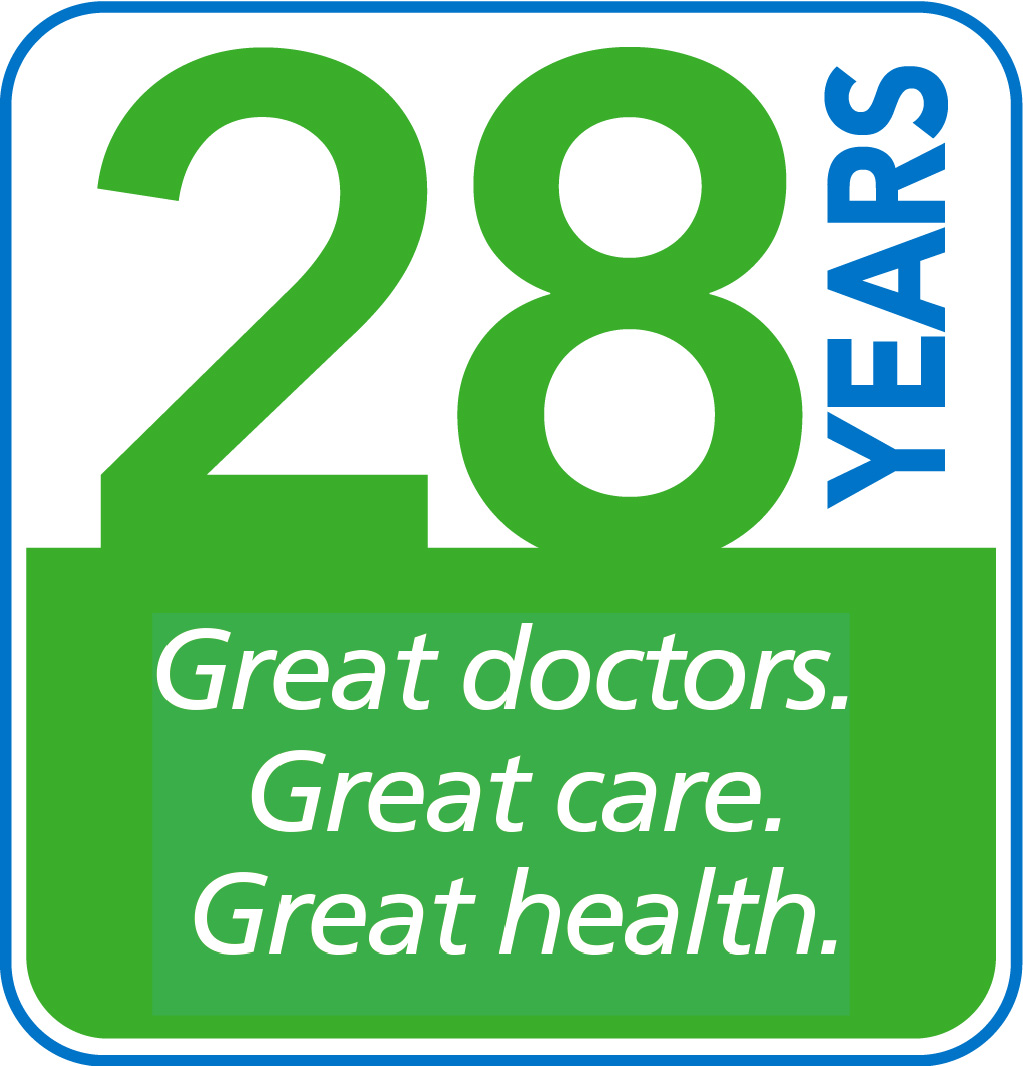Do These Four Things to Keep Your Eyes Healthy

By: ERIN YATES, CRNP
Many people are fortunate enough to take good vision for granted, however, there are more than 4.2 million Americans 40 years and older who have low vision or are legally blind.
The leading causes of blindness and low vision are these age-related conditions:
- Macular degeneration: Disease of the retina – the light-sensitive membrane lining the inner eyeball ‒ resulting in the loss of central vision.
- Cataracts: Clouding of the eye lens, the transparent section in the front of the eye.
- Diabetic retinopathy: Disease of the retina caused by uncontrolled diabetes.
- Glaucoma: Damage to the optic nerve ‒ which connects the eye to the brain ‒ caused by a build-up of fluid in the eye.
Four Ways to Protect Your Vision
- Find out if you are at risk for eye disease
Your risk for eye disease is higher if you:
- Are overweight or obese
- Have high blood pressure or diabetes
- Have a family history of eye disease
- Are African American, Hispanic or Native American
Talk to your primary care provider about ways to lower your risk.
- Take care of your health
Healthy habits like eating well and being active can lower your risk for conditions that can lead to eye or vision problems, like diabetes or high blood pressure. Follow these tips to support your vision health:
- Eat healthy foods. Be sure to have plenty of dark, leafy greens like spinach, kale, and collard greens. Eating fish that are high in omega-3 fatty acids ‒ like salmon, tuna and halibut ‒ is good for your eyes, too.
- Get active. Being physically active helps you stay healthy. It can also lower your risk of health conditions like diabetes, high blood pressure, and high cholesterol, all of which can cause vision problems.
- Quit smoking. Smoking increases your risk of diseases like macular degeneration and cataracts, and it can harm the optic nerve. If you are ready to quit, talk to your primary care provider about methods and support.
- Protect your eyes
There are ways to protect your eyes from things that may harm them.
- Wear sunglasses. Protect your eyes from the sun by wearing sunglasses, even on cloudy days. Be sure to look for sunglasses that block both UVA and UVB radiation.
- Wear protective eyewear. Safety glasses and goggles are designed to protect your eyes during certain activities, like playing sports, doing construction work, or doing home repairs.
- Give your eyes a rest. Looking at a computer for a long time can tire out your eyes. Rest your eyes by taking a short break from looking at the screen every 20 minutes.
- If you wear contacts, take steps to prevent eye infections. Always wash your hands before you put your contact lenses in or take them out. Be sure to disinfect your contact lenses and replace them regularly.
- Get an eye exam
Even if your eyes feel healthy, you could have a problem and not know it. That is because many eye diseases do not have any symptoms or warning signs. A complete, dilated eye exam is the only way to detect certain eye diseases early and early diagnosis can often make these diseases easier to treat.
If you are generally healthy, you should have a complete eye exam at age 40. This is the age when some vision changes and eye diseases are likely to start. If you are 60 or older, have your eyes checked every 1 to 2 years.
If you have type 1 or type 2 diabetes, you are at higher risk for diabetic retinopathy, which can lead to vision loss. Everyone with diabetes should have yearly eye exams as a part of their diabetes management. MPCP offers screening for diabetic retinopathy in our offices, so ask your provider about setting up an exam.
 Erin Yates, Certified Registered Nurse Practitioner, received her Master of Science in Nursing degree from George Washington University in 2018. She cares for patients in the Columbia office.
Erin Yates, Certified Registered Nurse Practitioner, received her Master of Science in Nursing degree from George Washington University in 2018. She cares for patients in the Columbia office.
Recommended Posts
Move Over Lyme Disease, Here Comes Babesiosis
By Timothy Klepper, M.D.
Where Are We Now With COVID-19?
By Falana Carter, M.D.
Telemedicine vs. Office Visits: Which One Do You Need?
By Stephanie McKenney Groff, D.O.



